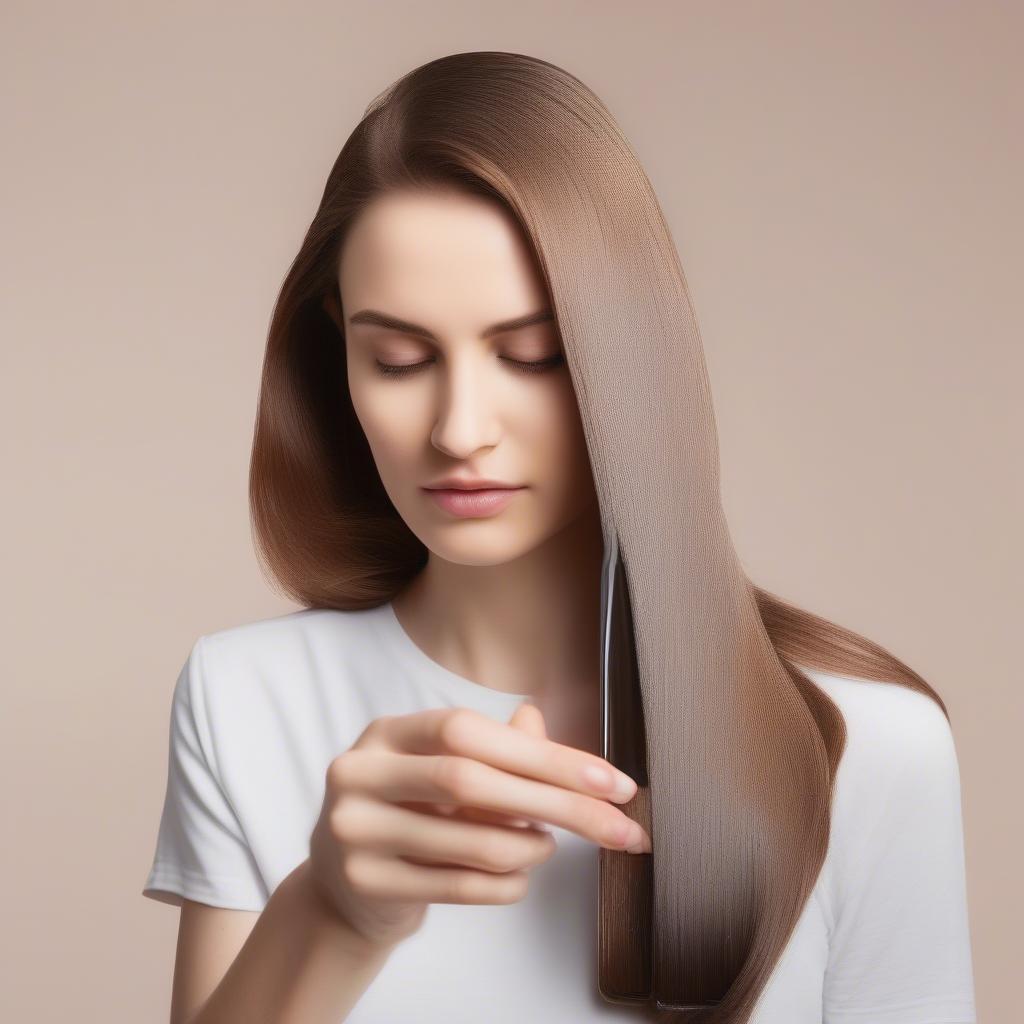Depressed Hairstyles: When Your Hair Reflects Your Mood
- AmazoniaSilva
- Tháng 1 8, 2025
- Zodiac signs
- 0 Comments
Depressed Hairstyles aren’t a specific style, but rather a reflection of how low mood can impact hair care. It’s about neglecting routines, losing interest in styling, and sometimes, even experiencing hair loss due to stress. Let’s explore how depression can affect your hair and what you can do to regain some control.
The Link Between Depression and Hair Neglect
When battling depression, even simple tasks can feel overwhelming. Showering, brushing, and styling hair often fall by the wayside. This neglect can lead to tangled, greasy hair, split ends, and a general unkempt appearance. This can further contribute to negative self-image, creating a vicious cycle.
Why Hair Care Matters During Depression
While it might seem trivial, taking care of your hair can be a small act of self-care that can make a big difference. It’s a tangible way to regain a sense of control and show yourself some kindness, even when motivation is low.
- Improved Self-Esteem: A little effort in your appearance can boost your confidence, even if it’s just a quick comb or braid.
- Sense of Accomplishment: Completing a small task can create a sense of achievement and break the cycle of inactivity.
- Physical Comfort: Clean, untangled hair simply feels better, which can be a small comfort during a difficult time.
Easy Hairstyles for When You’re Feeling Down
Even when energy is low, there are simple hairstyles that require minimal effort and can make you feel a bit more put together.
- Messy Bun: A classic for a reason. Just gather your hair on top of your head and secure it with a tie.
- Low Ponytail: Another quick and easy option, perfect for keeping hair out of your face.
- Braids: A simple braid can tame unruly hair and look surprisingly polished with minimal effort.
Tips for Maintaining Hair During Depression
- Dry Shampoo: A lifesaver for days when showering feels impossible.
- Leave-in Conditioner: Helps detangle and manage hair with minimal fuss.
- Wide-tooth Comb: Gentle on tangled hair and minimizes breakage.
Seeking Professional Help
If you’re struggling with depression, remember that you’re not alone. Professional help is available, and it can make a world of difference. Talking to a therapist or counselor can provide support and strategies for managing your symptoms.
“Addressing the underlying cause of the hair neglect, the depression itself, is crucial,” says Dr. Anya Sharma, a licensed clinical psychologist. “Hair care can be a part of self-care, but it’s important to seek professional help for the emotional challenges.”
Conclusion: Taking Small Steps Towards Self-Care
Depressed hairstyles are a visible sign of a deeper struggle. While addressing the underlying depression is crucial, even small acts of self-care, like managing your hair, can contribute to a sense of well-being. Remember, you deserve kindness and care, even when it feels difficult to give it to yourself. Start small, and don’t hesitate to seek professional support.
FAQ
- Can depression cause hair loss? Yes, stress related to depression can lead to hair loss.
- What are some other self-care tips for depression? Exercise, healthy eating, and mindfulness can be helpful.
- Is it normal to feel overwhelmed by simple tasks during depression? Absolutely. Depression can significantly impact motivation and energy levels.
- Where can I find a therapist or counselor? Your doctor can provide referrals, or you can search online directories.
- What if I can’t afford professional help? Many organizations offer sliding-scale fees or free services.
Need more support? Contact us at [email protected] or visit us at Fifth Avenue, 34th Floor, New York, NY 10118, USA. We have a 24/7 customer support team. You can also check out our other articles on mental health and self-care on our website.
